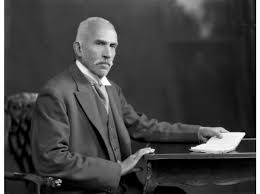Sir Sankaran Nair: Tribute

The Prime Minister’s tribute on the 106th anniversary of the Jallianwala Bagh massacre acknowledged Nair’s fearless voice against British tyranny.
- Sir Chettur Sankaran Nair was born in 1857 in an aristocratic family from Mankara village, located in Malabar’s Palakkad district (present-day Kerala).
- In 1897, Nair became the youngest President of the Indian National Congress (INC) — and remains the only Malayali to have ever held that post.
- He was appointed to the Raleigh University Commission by Lord Curzon in 1902.
- Honored as Companion of the Indian Empire in 1904 and knighted in 1912 for his service.
- In 1908, he became a permanent judge in the Madras High Court, where he was known for progressive and reform-oriented judgments.
- In 1915, he joined the Viceroy’s Executive Council, overseeing the education portfolio.
- Nair was a strong nationalist who firmly advocated for India’s right to self-rule.
- In 1919, he contributed significantly to the Montagu-Chelmsford Reforms, which introduced dyarchy in provinces and increased Indian participation in administration.
- Following the Jallianwala Bagh massacre on April 13, 1919, he resigned from the Viceroy’s Council in protest — a bold move that shook the British government.
- His resignation triggered changes, including the lifting of press censorship in Punjab, the termination of martial law, and the formation of the Hunter Commission to investigate the massacre.
- In his book, Nair accused Michael O’Dwyer, then Lieutenant Governor of Punjab, of being directly responsible for the Jallianwala Bagh massacre due to his repressive policies.
- O’Dwyer filed a defamation case against Nair in an English court in 1922, expecting support from the British legal system.
- The trial lasted five and a half weeks and was the longest-running civil trial in Britain.
- The 12-member English jury, presided over by Justice Henry McCardie, mostly sided with O’Dwyer (11–1 majority), with only Harold Laski, a Marxist theorist, dissenting.
- Although Nair lost, the trial exposed the deep bias in the British legal system and galvanised nationalist sentiments in India.




